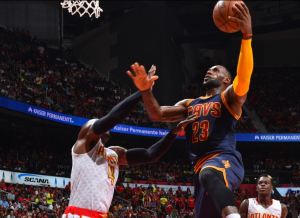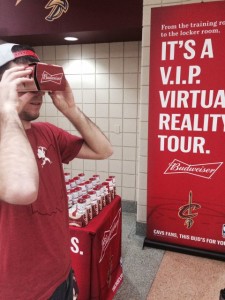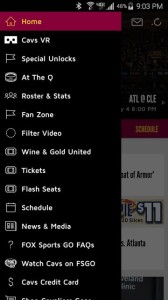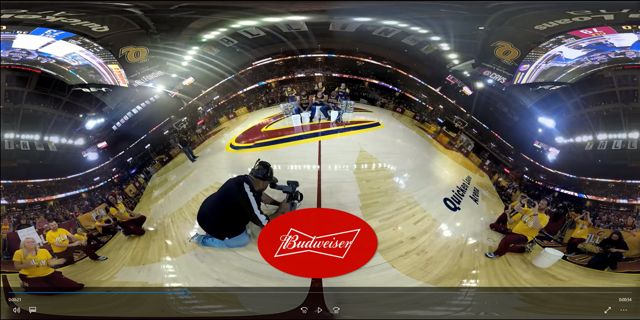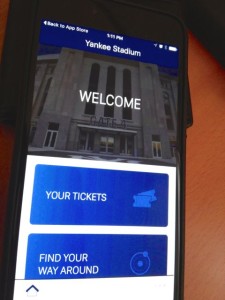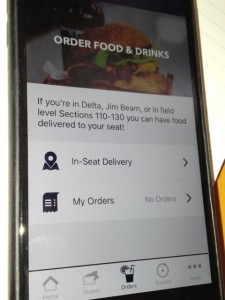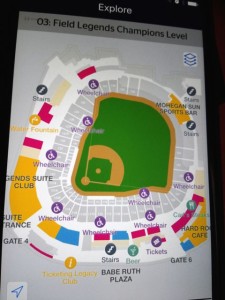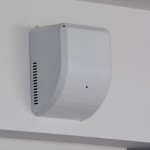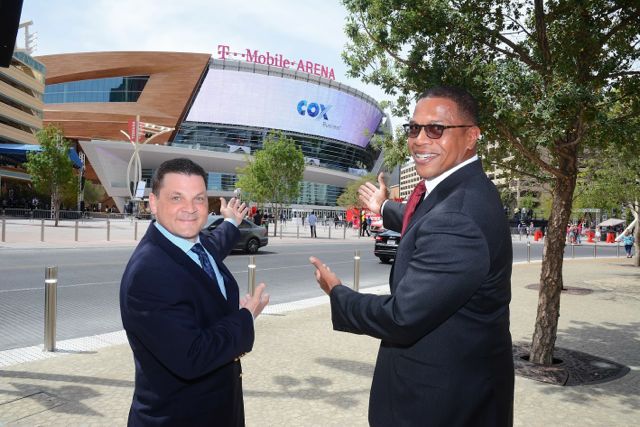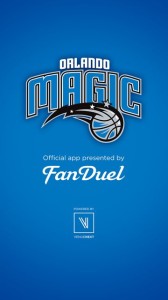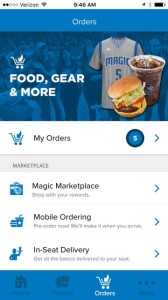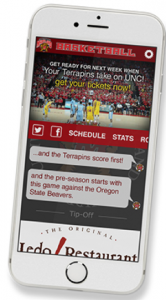
Screen shot of nGage Fan Feed. Credit: SignalShare
UPDATE, 7/7/16: According to the auctioneers, the auction is currently postponed, due to their claims of a bankruptcy filing by SignalShare. More details as we learn more.
SignalShare, which has installed and operated Wi-Fi networks in a number of large sports venues, including arenas used by the Detroit Red Wings, the Houston Rockets, the Sacramento Kings, the University of Maryland and others, is being sued for $7.8 million by NFS Leasing, an equipment leasing company, over a dispute involving allegedly fraudulent leases by SignalShare and SignalShare’s default on an agreement to pay back money obtained through those leases. As part of the ongoing legal proceedings, NFS has apparently scheduled an auction of SignalShare assets it claims, including leases, software code and hardware, for July 14 through Paul E. Saperstein Co., Inc.
So far, Mobile Sports Report has not been able to get any comments on the lawsuit or the auction from SignalShare, NFS, or any of the venues where SignalShare had installed networks. According to the auction site, NFS will make available for auction the contracts between SignalShare and the following list of teams and venues: The Golden State Warriors and Oracle Arena; the Carolina Hurricanes and PNC Arena; the Houston Rockets and Toyota Center Arena; the Detroit Red Wings and Joe Louis Arena; the Jacksonville Jaguars and Everbank Field; the Milwaukee Bucks and Brady Harris Arena; and the Las Vegas Sands Convention Center.
According to sources familiar with some of the SignalShare deals, some of the networks were run under a lease agreement, where the team or venue owners paid SignalShare a monthly fee for operation of the Wi-Fi network, with SignalShare retaining ownership of the actual equipment. According to legal documents filed in the case, NFS provided the financing for many of the existing SignalShare deals, as well as millions more in financing for deals NFS claims never actually existed. So far, there has been no public accounting for where the millions provided by NFS for the allegedly fraudulent leases ended up.
Live-Fi code also up for auction
While the leases are potentially interesting to many possible parties — firms who could take over the network operations, or who might be interested in purchasing the leased equipment — the asset with perhaps the most tangible worth is SignalShare’s “Live-Fi” software, a kind of customer portal program meant to help teams and venues engage more closely with fans and to also facilitate advertising sales. According to legal documents filed in the case, SignalShare owners apparently attempted to transfer the ownership of the Live-Fi code to a subsidiary firm to apparently keep it out of any claim proceedings, a move that was recently blocked when the courts granted an injunction requested by NFS.
Aside from whatever happens in the ongoing legal case and at the auction, for the venues involved the bigger question is more likely what happens to their existing or planned networks. In several of the mentioned deals, including the Jaguars, the University of Maryland and the Detroit Red Wings, SignalShare publicly partnered with Wi-Fi gear provider Extreme Networks; Extreme representatives declined to comment on any specifics of the SignalShare lawsuit.
One common trait shared by several of the SignalShare deals was that they involved Wi-Fi networks at arenas that were scheduled to be replaced or abandoned by the teams in the near future — the Warriors, Kings and Red Wings are all already building or planning to build new stadiums. The SignalShare “leasing” model may have seemed more attractive than spending the potentially millions in upfront costs for a network that may only have been used for a few years. The only thing for sure now is that the future of Wi-Fi at the venues mentioned seems to be on hold until the legal questions around SignalShare’s operations are answered.
